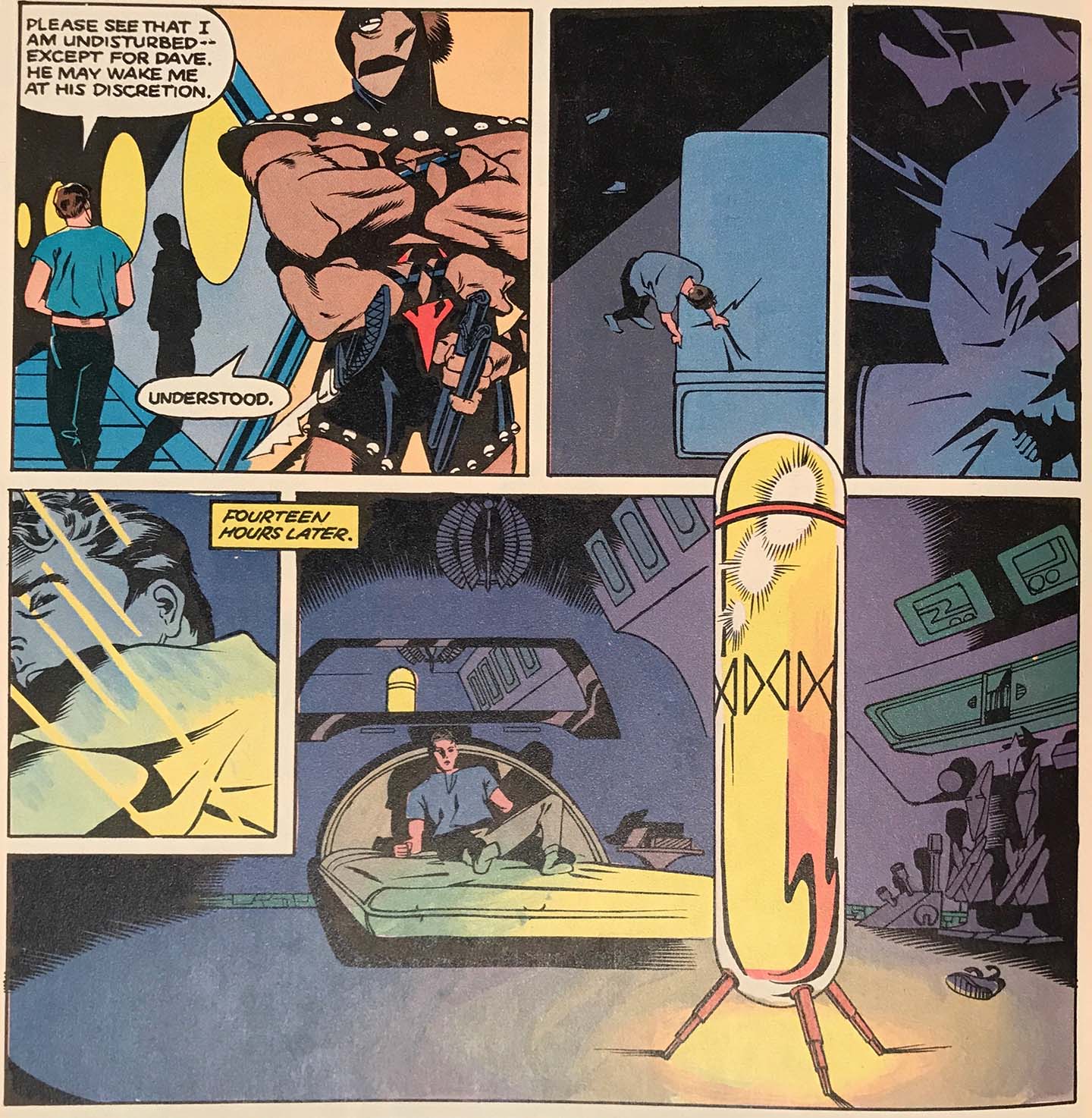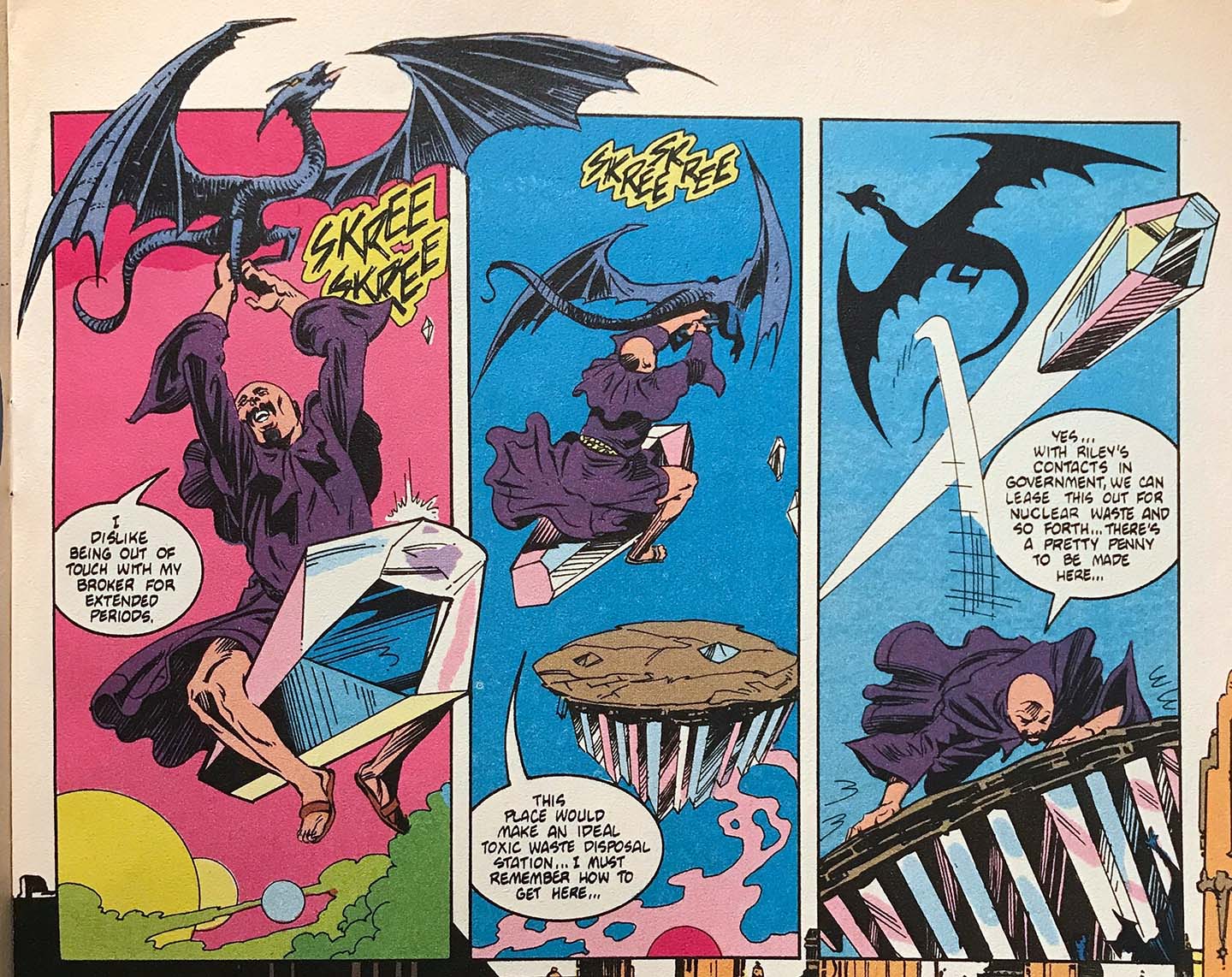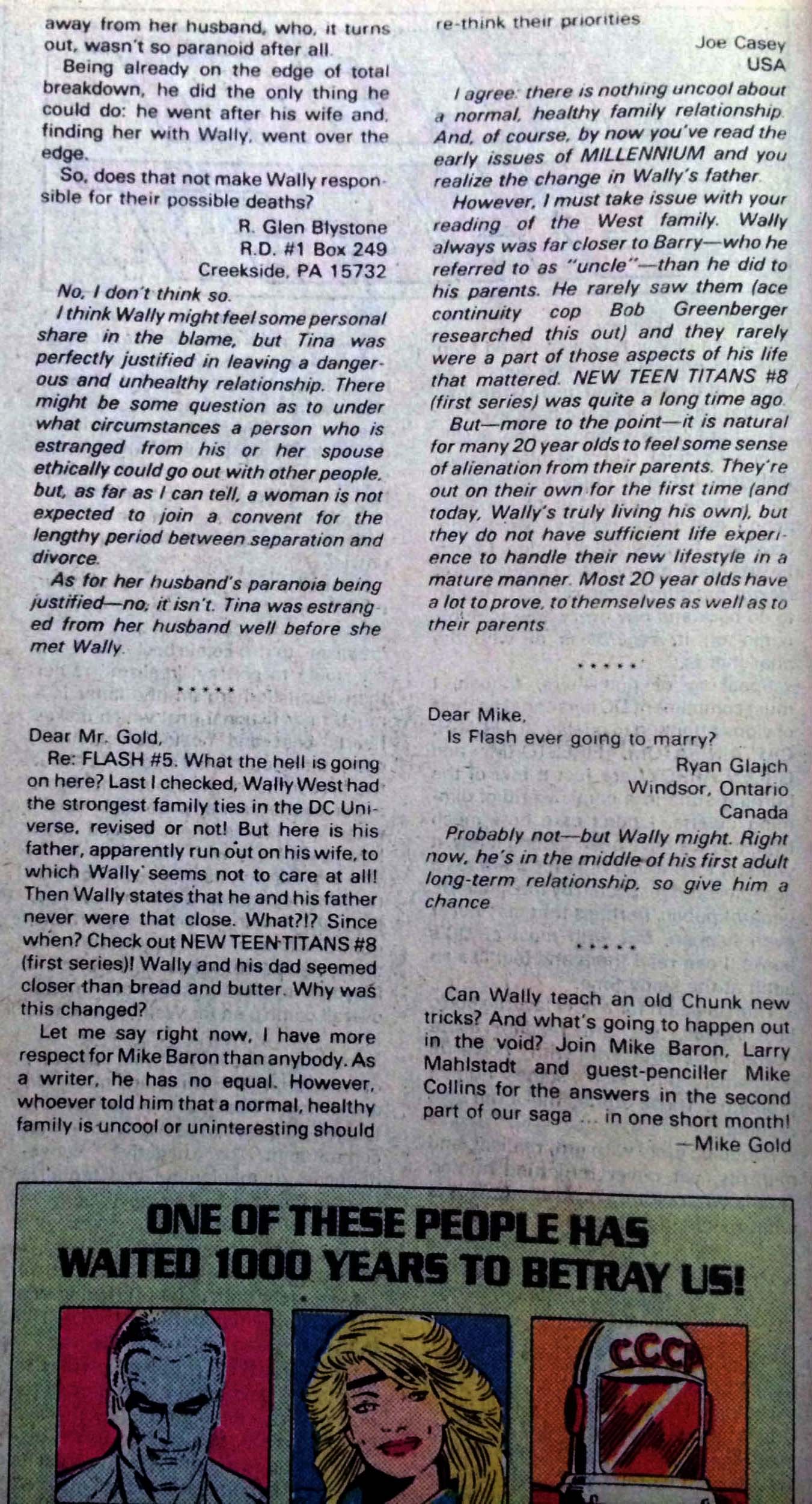PART ONE · Keyed Up
I've never read this many Flash comics before, and now that I've gone deep into everything Mike Baron and William Messner-Loebs respectively wrote for the character, I must report back to you. Two separate and distinct approaches to an identical job by two writers I like was worth the revisit, and although I fondly remembered a quarter of these issues from when I picked them up as new releases, I wanted to see if the material held up, also hoping to discover why it's never been collected.
A few notes:
· Mike Baron wrote the Flash relaunch in 1987 and the main artist on that was Butch "Jackson" Guice, who was no stranger to speedsters. Their first collaboration was months before the relaunch in Teen Titans Spotlight #s 7 & 8. This "demo tape" is recommended. Between TTS and Flash, Guice drew a fill-in issue of Baron's Nexus.
· The old Flash was dead and his replacement was Wally West. The editorial objective here was to do things as differently from the previous Flash series as possible. New villains, new situations, new personality. They hired the guy who wrote Nexus and Badger. Around the same time, Baron began writing Punisher for Marvel. He was on fire.
· Wally West is a 20 year old (who looks like the typical forever 30s superhero) who has to constantly eat due to his insane metabolism, sleeps heavily/is exhausted after he uses his speed power, wins the lottery, and has a sex life. All this came from Baron, who played with similar ideas in Nexus and Badger.
· Sex life includes sparking a fling with a married woman (who is actively trying to get a divorce). A lot of slut-shaming in the letters pages, most likely written by conservative virgins with little grasp on adult relationships. Editor Mike Gold did his best to field this nonsense.
· The first six issues are fun and solid, they have a lot of momentum. Baron is writing carefully, with purpose. (Tho TCJ's own R. Fiore didn't agree.) The Annual is a pretty good standalone martial arts story featuring a cast of characters that are never seen again.
· Baron updated an old villain (Vandal Savage) and created a new one (Chunk), both treatments having roots in the previous year's Badger.
· Baron does his best with the event tie-in issue he had to do. With Guice on art (and Larry Mahlstedt on inks for the most part), the team kept rocking until Mike Collins filled in for the tenth issue.
· You can sort of feel the energy leave the room slowly midway through Baron's stint. Between the Millennium crossover and the fill-in artist, Baron and Guice were no longer in the pocket. I can see how what seemed like a promising opportunity to do some relatively crazy DC comics, the reality of the corporate crunch left Baron less than inspired. He's gone on record admitting as much. He was possibly making things up on the fly, fast approaching burn-out. His ill-fated Sonic Disruptors was cancelled around this time.
· The last few issues here, #s 12-14, end in a whimper; art by rookie Collins (who returned after Guice drew one more issue before going back to Marvel for a stretch).
Here are some Baron/Guice highlights:
Hey, look! A letter by a young Joe Casey in issue nine:
Casey would go on to interview Baron himself in 2004.
I'm charmed by the odd impact these double page spreads make. We're getting into outsider art territory here.
I've always thought Guice was solid - with roots in Michael Golden - but there's a discordance in his Flash work that ends up perfectly complementing the stories. His aim at bombast struggles with his instincts for naturalism, and that style awkwardness is a compelling feature of these comics. Despite being described by John Byrne as comics' own El Greco, Guice's evolved approach has survived the times. He fits right into the dominant superhero neo-realism landscape of the past 20 years. Masterful stuff, but give me long-ass arms any day of the week.
Barbara Randall-Kesel took over Mike Gold as editor. Softball shade, in response to a letter writer asking about Mike Baron.
"Random weirdness" --! His Flash is definitely a weird read, but you gotta lock into it. You have to be open to unsentimental, almost disjointed storytelling. Baron packs the book with new concepts, but not in a flimsy way, like emptily sprinkling scenes with ideas to show how clever he can be. Baron actually tries to get in there and explore some of those ideas. Having Guice be the straight man who only draws what is required with no fluff, no fanfare, is a good balance.
I'm willing to bet it was Baron who wrote in the girl's expression in this last panel, easily the funniest moment in all of Baron's run:
Pick these comics from the bins and pop in whatever you think Wally listens to. Get your yuppie on.
[Cont.]























